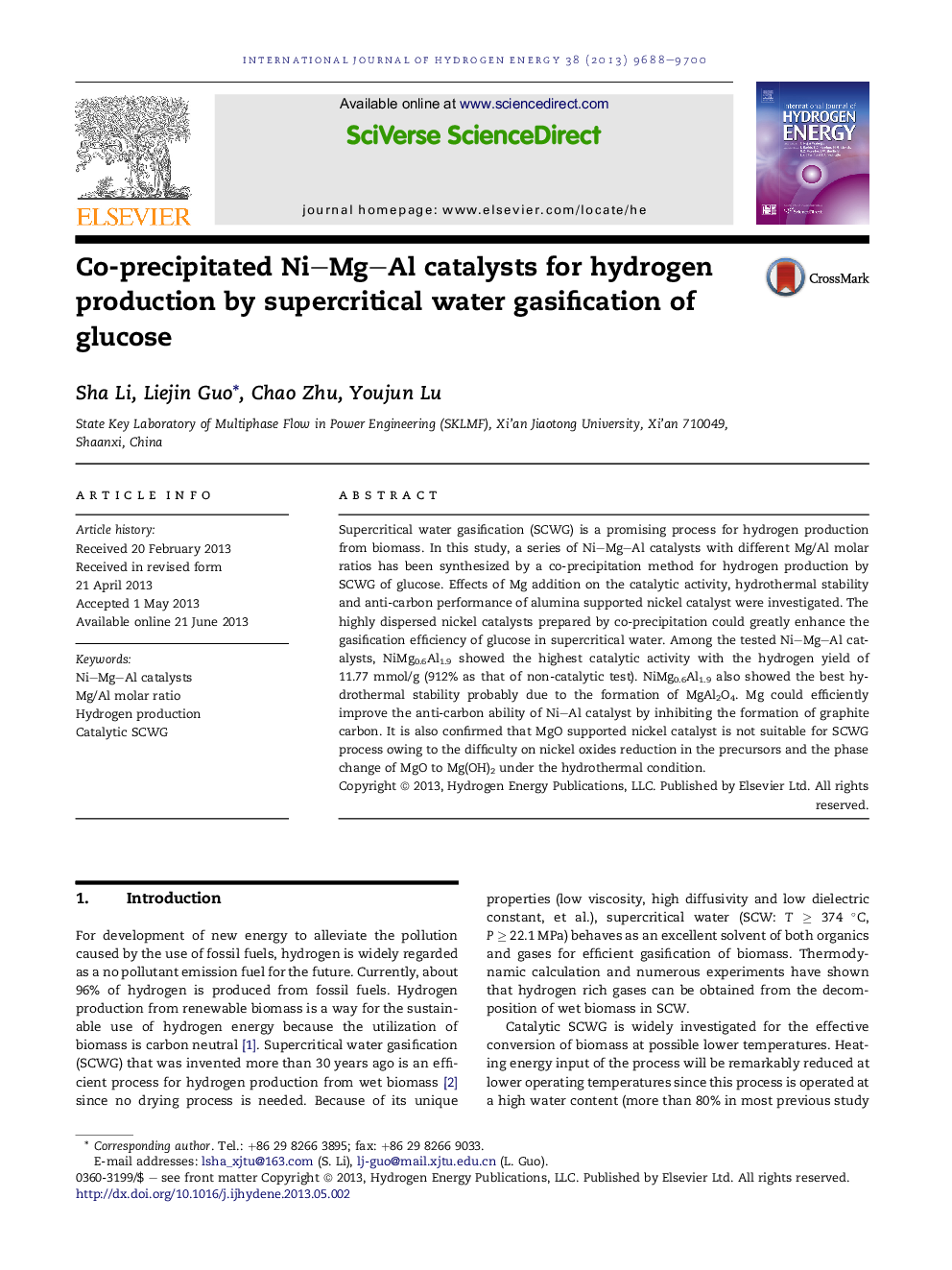| Article ID | Journal | Published Year | Pages | File Type |
|---|---|---|---|---|
| 7722270 | International Journal of Hydrogen Energy | 2013 | 13 Pages |
Abstract
Supercritical water gasification (SCWG) is a promising process for hydrogen production from biomass. In this study, a series of Ni-Mg-Al catalysts with different Mg/Al molar ratios has been synthesized by a co-precipitation method for hydrogen production by SCWG of glucose. Effects of Mg addition on the catalytic activity, hydrothermal stability and anti-carbon performance of alumina supported nickel catalyst were investigated. The highly dispersed nickel catalysts prepared by co-precipitation could greatly enhance the gasification efficiency of glucose in supercritical water. Among the tested Ni-Mg-Al catalysts, NiMg0.6Al1.9 showed the highest catalytic activity with the hydrogen yield of 11.77Â mmol/g (912% as that of non-catalytic test). NiMg0.6Al1.9 also showed the best hydrothermal stability probably due to the formation of MgAl2O4. Mg could efficiently improve the anti-carbon ability of Ni-Al catalyst by inhibiting the formation of graphite carbon. It is also confirmed that MgO supported nickel catalyst is not suitable for SCWG process owing to the difficulty on nickel oxides reduction in the precursors and the phase change of MgO to Mg(OH)2 under the hydrothermal condition.
Keywords
Related Topics
Physical Sciences and Engineering
Chemistry
Electrochemistry
Authors
Sha Li, Liejin Guo, Chao Zhu, Youjun Lu,
